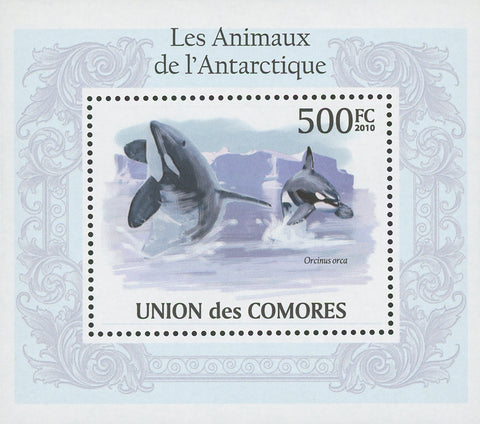Comoros, paleontologists, Science, Imperforate Souvenir of 6 stamps, Mint NH
Paleontology or palaeontology (/ˌpeɪliɒnˈtɒlədʒi, ˌpæli-, -ən-/) is the scientific study of life that existed prior to, and sometimes including, the start of the Holocene Epoch (roughly 11,700 years before present). It includes the study of fossils to determine organisms' evolution and interactions with each other and their environments (their paleoecology). Paleontological observations have been documented as far back as the 5th century BC. The science became established in the 18th century as a result of Georges Cuvier's work on comparative anatomy, and developed rapidly in the 19th century. The term itself originates from Greek παλαιός, palaios, "old, ancient", ὄν, on (gen. ontos), "being, creature" and λόγος, logos, "speech, thought, study".
Paleontology lies on the border between biology and geology, but differs from archaeology in that it excludes the study of anatomically modern humans. It now uses techniques drawn from a wide range of sciences, including biochemistry, mathematics, and engineering. Use of all these techniques has enabled paleontologists to discover much of the evolutionary history of life, almost all the way back to when Earth became capable of supporting life, about 3.8 billion years ago. As knowledge has increased, paleontology has developed specialised sub-divisions, some of which focus on different types of fossil organisms while others study ecology and environmental history, such as ancient climates.
Fast & Free Shipping within U.S.A.
We Care for your order, Pack it carefully and ship it within 24 hours.
Satisfaction Guaranteed!
Please explore our store for more stamps, souvenir sheets, post-office collectibles and philately books and pre-philatelic items:
montecinos.philately



















